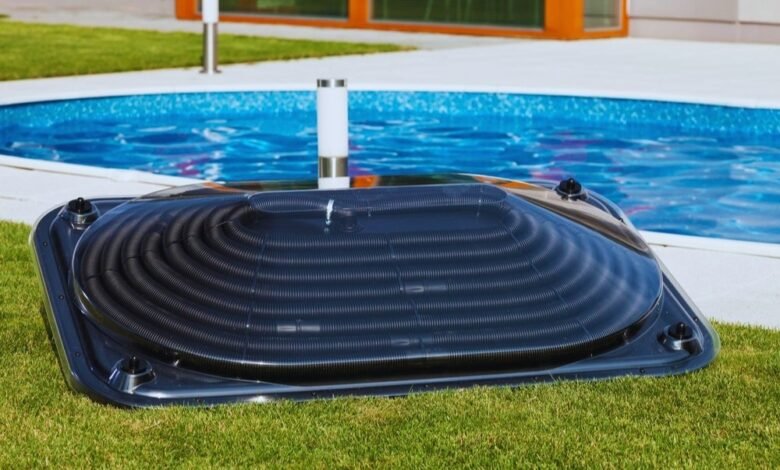Exploring the Different Types of Pool Heaters

Keeping your swimming pool at a comfortable temperature isn’t just a luxury for those cool evenings; it’s a necessity for year-round enjoyment, especially in regions with cooler climates. Pool heaters offer a solution to extend the swimming season beyond the warm summer months. In this guide, we explore the different types of pool heaters available on the market, helping you choose the right one for your needs.
Solar Pool Heaters
Solar pool heaters harness the power of the sun, the most eco-friendly energy source available. These systems include solar panels that collect sunlight and circulate pool water through the panels to heat it and then return the warm water to the pool.
Pros:
- Environmentally Friendly: They produce no emissions and use a renewable energy source.
- Cost-Effective in the Long Run: After the initial installation cost, the ongoing operating expenses are minimal since they use free solar energy.
- Low Maintenance: These systems typically require less maintenance than gas or electric heaters.
Cons:
- Weather Dependent: Their efficiency significantly drops on cloudy or rainy days.
- Slow Heating: Solar heaters work more slowly than other types, which can be a drawback if quick temperature changes are desired.
Gas Pool Heaters
Gas pool heaters are one of the most popular choices for heating pools and spas, capable of maintaining any desired temperature regardless of the weather conditions. These heaters use either natural gas or propane.
Pros:
- Fast Heating: Gas heaters heat the pool quickly, making them ideal for pools that aren’t used regularly.
- Effective in Any Weather: They perform well regardless of the sunshine or outside temperature.
Cons:
- Higher Operational Costs: The cost of propane or natural gas can add up, especially during colder months.
- Environmental Impact: Burning gas emits carbon dioxide, which is not ideal for those looking to reduce their carbon footprint.
Electric Resistance Heaters
Electric resistance heaters generate heat by passing electric current through resistors which directly heat the water. They are straightforward and reliable.
Pros:
- Consistent Heating: Can reliably maintain the pool temperature.
- Compact Size: Generally smaller than other types of heaters, making them suitable for spas and small pools.
Cons:
- High Energy Consumption: These heaters can be costly to operate, particularly where electricity rates are high.
- Not Suitable for Large Pools: Their efficiency drops in larger pools due to the high energy requirements.
Heat Pumps
Heat pumps utilize electricity to extract heat from the air or groundwater and then transfer it to the pool water. These systems are more energy-efficient than electric resistance heaters and work best in mild climates.
Pros:
- Energy Efficient: Uses less energy compared to electric heaters and gas heaters in the right conditions.
- Consistent Performance: Can maintain a constant pool temperature if the air temperature remains above 50 degrees Fahrenheit.
Cons:
- Initial Cost: Higher upfront cost than some other heaters.
- Dependent on Environment: Efficiency drops in cooler temperatures.
Conclusion
Choosing the right pool heater depends on various factors including your climate, pool size, budget, and environmental considerations. Solar heaters are best for eco-conscious consumers not in a hurry to swim, while gas heaters are suited for those needing rapid heat changes. Electric heaters are ideal for small pools or spas, and heat pumps offer a balance of efficiency and performance for moderate climates. By understanding the pros and cons of each type of pool heater, you can make an informed decision that best fits your needs.



